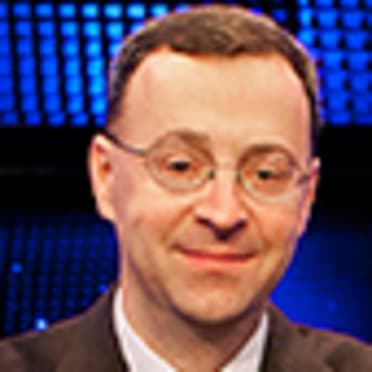What to expect from Marlins' Pérez in the big leagues
The Marlins have had four elite pitching prospects in their three-decade history.
Liván Hernández became the first rookie ever to win League Championship Series and World Series MVP honors in the same postseason, helping the franchise capture its first championship in 1997. Josh Beckett was an LCS hero and World Series MVP when the Marlins won their second in 2003. The late José Fernández was a National League Rookie of the Year and a two-time All-Star in four seasons before his death in 2016.
The fourth is fellow right-hander Eury Pérez, who will make his big league debut on Friday. Ranked No. 10 on MLB Pipeline's Top 100 Prospects list, he'll become the youngest pitcher in Marlins history at 20 years and 27 days old, surpassing Fernández by 223 days. He'll be the youngest player to appear in the Majors since Elvis Luciano broke in with the Diamondbacks at 19 years and 44 days old in 2019, and the youngest big league starting pitcher since Julio Urías (19 years, 289 days) with the Dodgers in 2016.
Regardless of his age, Pérez is an exciting and unique talent who has developed more rapidly than could have been expected -- especially considering his pro debut was delayed a year by the pandemic shutdown in 2020.
The first thing that jumps out about Pérez is his height: 6-foot-8. Not only is he taller than most pitchers, he also has elite body control for someone so big and so young. He has no difficulty keeping his long limbs in sync and repeating his delivery, which allows him to provide plenty of strikes.
Pérez's stuff also makes an immediate impression. His fastball usually ranges from 94-97 mph and tops out at 100, with its shape, running action and induced vertical break as notable as his velocity. His changeup is as devastating as his heater, arriving in the upper 80s before fading and tumbling at the plate.
Early in his career, Pérez used an upper-70s curveball as his breaking pitch. It's still a solid offering, but he rarely employs it now and favors a slider that he added in 2022. His slide piece sits in the mid-80s and features tight break, grading as plus more consistently than his curve.
In addition to his physical ability, Pérez stands out with his maturity and mound presence, two more factors that have led to precocious success since he signed for $200,000 out of the Dominican Republic in 2019. He was 6-foot-4 and 175 pounds when he turned pro at age 16, and he added four inches and 20 pounds by the time he reported to instructional league in the fall of 2020 after the pandemic wiped out the Minor League season.
Though he had yet to pitch in an official pro game and was the youngest pitcher in camp, Pérez was the most impressive pitcher there, touching 95 mph and showing the makings of what have become quality secondary pitches. His combination of stuff and polish persuaded the Marlins to send him to Single-A in 2021 for his pro debut at age 18, and he responded by posting a 1.96 ERA, .158 opponent average and 108/26 K/BB ratio in 78 innings while finishing the season in High-A.
Miami challenged Pérez again last year by sending him to Double-A even though he didn't turn 19 until shortly after Opening Day. He continued to dominate, logging a 3.97 ERA with a .221 opponent average and a 11/25 K/BB in 77 innings. He also starred at the SiriusXM All-Star Futures Game in Los Angeles, reaching 99 mph while requiring just 10 pitches to retire three Top 100 Prospects in order.
Pérez strained his lat shortly afterward, prompting the Marlins to shut him down for a month as a precaution, but returned in time to help Pensacola win the Double-A Southern League championship. He went back there to begin this season, giving up five earned runs in his first two starts but just three in his last four. He ranks among the SL leaders in several categories, including strikeouts (42, fourth), opponent average (.148, fourth), strikeout minus walk percentage (28.2, fourth), ERA (2.32, sixth) and strikeout rate (12.2 per nine innings, sixth).
Pérez still can get better at some of the finer points of his craft, such as fielding his position and holding runners, but he has the stuff and poise to pitch in the Majors at age 20. Miami needs help in a rotation that has lacked consistency behind Sandy Alcantara and Jesús Luzardo and currently has Johnny Cueto and Trevor Rogers on the injured list.
The Marlins will continue to handle Pérez with care because he's so young and never has exceeded 78 innings in a season. Given his history, there's no reason to believe he won't be successful in the big leagues, even if it's in shorter bursts for a while. Once he gets established, he should be the next elite Marlins pitching prospect to turn his potential into stardom.
